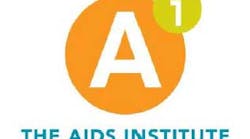Infection control update: Survey reveals sequestration impacting AIDS care while number of patients increases
Oct. 31, 2013
Washington, DC — HIV care in the United States is suffering as a result of sequestration while the number of AIDS patients is increasing. That is the conclusion of a survey conducted by The AIDS Institute of 131 AIDS organizations in 29 states and the District of Columbia on the impact of sequestration and other budget cuts.RELATED |New Guidelines for HIV Exposure In the last year, domestic HIV/AIDS programs have been cut nearly $380 million. As a result of these and other cuts, 85% of the organizations surveyed experienced funding reductions. At the same time, 79% experienced an increase in clients. While there was a wide range of cuts, the average reduction of those surveyed was 17%. As a result, 52% of survey respondents who detailed the impact of their lost funding indicated they have had to reduce staff, while 38% had to cut prevention education programs, and 22% cut back on HIV testing. At least one organization had to close down completely. Staff reductions impacted case management, administrative, and clinical staff the hardest. According to survey respondents, the funding reductions have resulted in cuts to patient services, including longer times between appointments and increased wait times at the clinic. Some have even stopped seeing certain patients. “This survey demonstrates that the severe cuts enacted by the Budget Control Act are having real, negative consequences on HIV/AIDS organizations and their patients across the nation,” commented Carl Schmid, deputy executive director of The AIDS Institute. “These budget cuts, coupled with an increasing number of HIV patients, have impacted their ability to provide timely, quality care and prevent future HIV infections. If these cuts continue, they will certainly lead to increased infections, more deaths, and higher health-care costs.” “At a time when we know how to reduce an infectious disease such as HIV through prevention and treatment, and we have a National HIV/AIDS Strategy grounded in science, now is not the time to reverse the substantial progress that has been made,” continued Schmid. There are nearly 50,000 new infections each year in the United States and only one-third of the nearly 1.2 million people with HIV in the United States have been prescribed antiretroviral treatment. “We have a long way to go before we can realize the dream of an AIDS-free generation,” said Michael Ruppal, executive director of The AIDS Institute. “We urge the Congress and the President to reverse the cuts caused by sequestration and adequately fund critical public health programs, including those that prevent HIV and provide for care and treatment for people living with HIV,” Ruppal concluded. The full survey results can be found here. The AIDS Institute is a national nonprofit organization that promotes action for social change through public policy, research, advocacy, and education. For more information and to become involved, visit www.TheAIDSInstitute.org or write to us at [email protected], and follow The AIDS Institute on Twitter @AIDSAdvocacy and Facebook at www.facebook.com/The-AIDS-Institute.ADDITIONAL READING ...New HIV-1 replication pathway discovered by NYU College of Dentistry researchersChairside Salivary Diagnostics for Oral DiseasesNew federal guidelines for managing occupational exposures to HIV 2013American Dental Association Statement on Infection Control in Dental SettingsTwo dentists emphasize oral-systemic message through HIV/AIDS dental clinic






